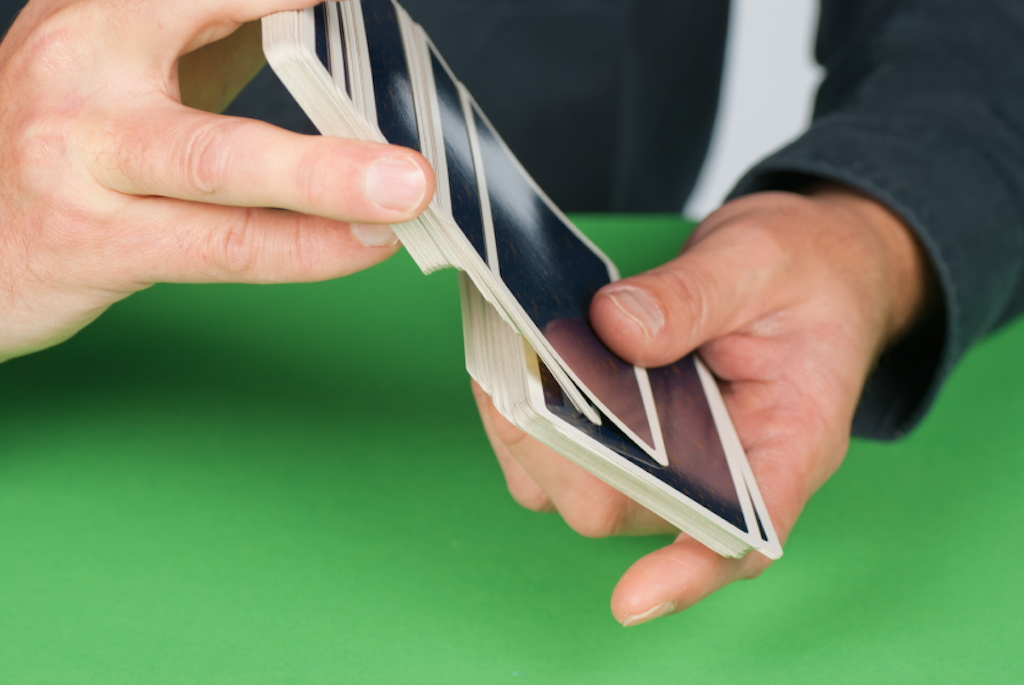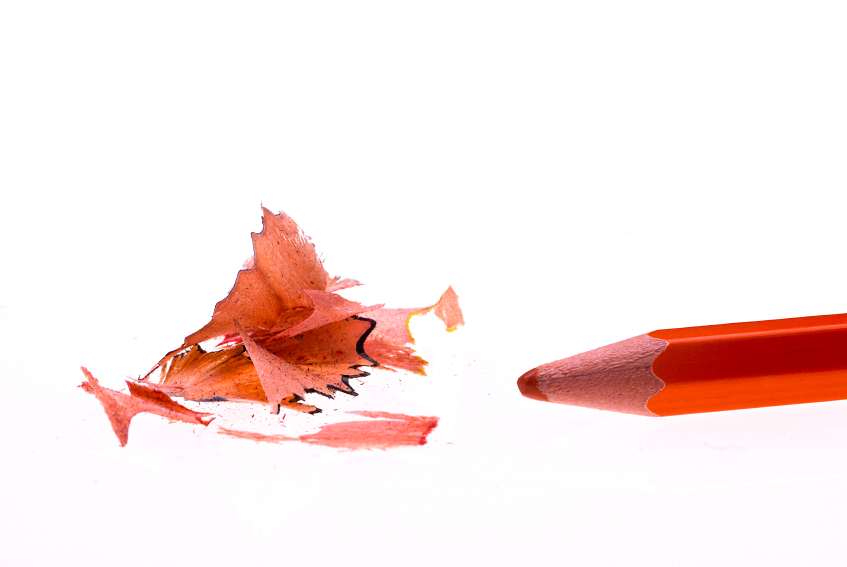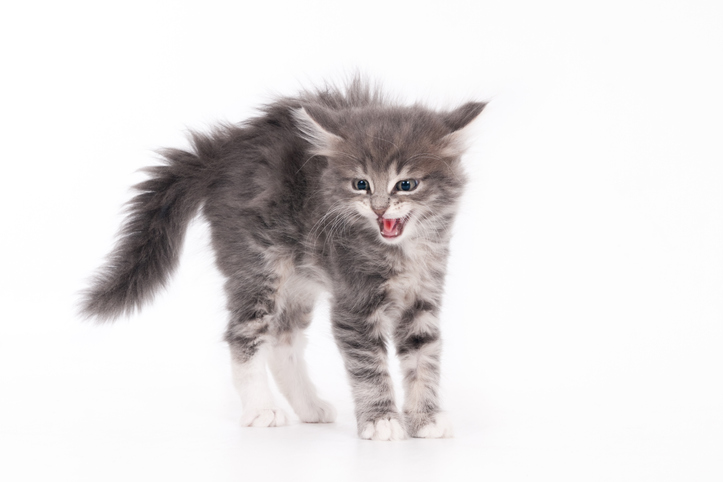shuffle
(verb, noun)
/ˈʃʌfəl/
 LISTEN
LISTEN


Shuffling cards
To shuffle means ‘to walk without lifting your feet,’ or ‘to drag your feet along the ground, as in dancing.’ It also means ‘to rearrange things randomly,’ or ‘to mix playing cards.’ As a noun, a shuffle is a dragging movement, the action of rearranging or mixing things, or a type of dance or piece of music.
Example sentences
- "Pick your feet up and stop shuffling!" the mother told her little boy.
- The dancers shuffled their feet to the music.
- If you shuffle things around a bit in the cabinet, you should be able to fit everything in.
- At the casino, the dealer shuffled the deck before dealing five cards to each player.
- Simon approached the teacher reluctantly with an awkward shuffle of his feet.
- Gita gave the cards a shuffle.
- The band was playing a shuffle when we arrived.
Words often used with shuffle
shuffle through something: look through things. Example: “Partha shuffled through the papers on his desk to see if there were any important documents there.”
shuffle some of it off: get rid of something, give something to someone else: “There was too much work, so the boss tried to shuffle some of it off.”
get lost in the shuffle (US, informal): be overlooked or ignored. Example: “The trouble with the education system is the teachers don’t have enough time and sometimes kids who are struggling get lost in the shuffle.”
In pop culture
Hollywood Shuffle is the title of a 1987 movie, and you can see the trailer here:
Did you know?
We often use the term “on shuffle” when talking about music. If you have an album or playlist (a list of songs on your computer, phone, etc.), you can listen to the songs in the order that they are listed, or “on shuffle.” This means that the songs are shuffled and will be played in a random order, and it is a very common expression among English speakers. Example: “Alex made a playlist for the party and then put the music player on shuffle, so he never knew which song would be next.”
Other forms
shuffler (noun)
Origin
Shuffle dates back to the early 16th century, and originally meant ‘to put something together hastily.’ Its origin is uncertain. Some linguists think that it evolved from the Middle English verb shovelen (to move with dragging feet), a frequentative of shoven (to shove). Others believe that it came into English from the Middle Low German schuffeln (‘to walk clumsily’ or ‘to deal dishonestly’). Either way, it can probably be traced back to the Proto-Germanic scubanan and the Proto-Indo-European root skeubh– (to shove). Shuffle is related to the Old Norse skufa, the Old Frisian skuva, the Dutch schuiven, the Old High German scioban, the German schieben and the Danish skubbe (to push or thrust), as well as the Lithuanian skubti (to hurry), the Polish skubać (to pluck), the Albanian humb (to lose), and the English words shove, shovel and scuffle. The senses ‘to walk slowly without lifting your feet,’ ‘to push along gradually,’ ‘to rearrange things randomly’ and ‘to mix playing cards’ all appeared in the mid-16th century, while ‘to move from one place to another’ dates back to the late 16th century. The noun comes from the verb, and dates back to the early 17th century. The original meaning, ‘an evasion or trick,’ expanded to include ‘wavering or undecided behavior meant to deceive’ in the mid-17th century. Shuffle as a type of dance is also from the 17th century, as is the card-related meaning. The sense ‘a slow, irregular way of moving’ first appeared in the mid-19th century. The expression ‘get lost in the shuffle’ dates back to the late 19th century, and is a figurative use of the card-mixing sense.
Word of the Day is released Monday through Friday.



